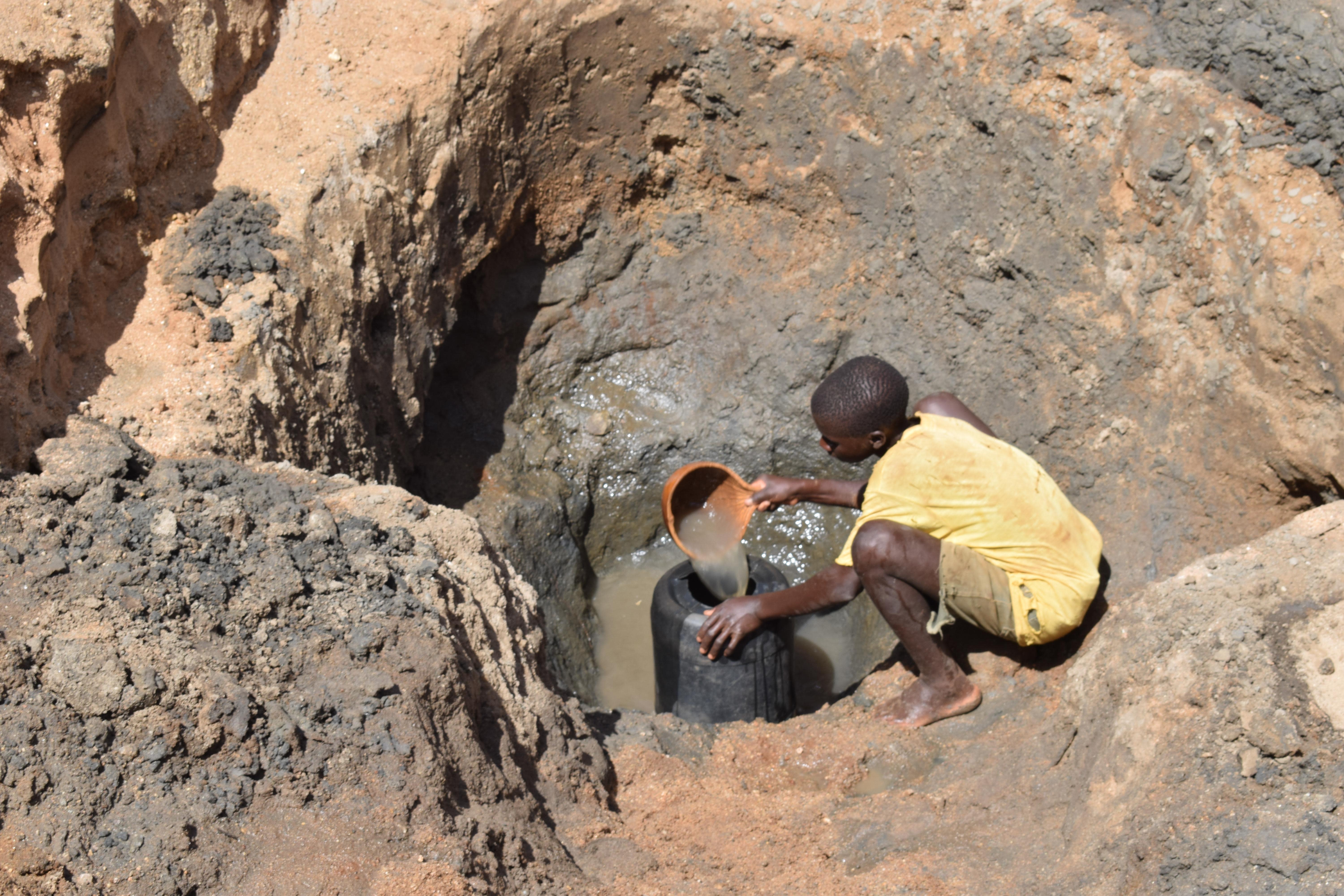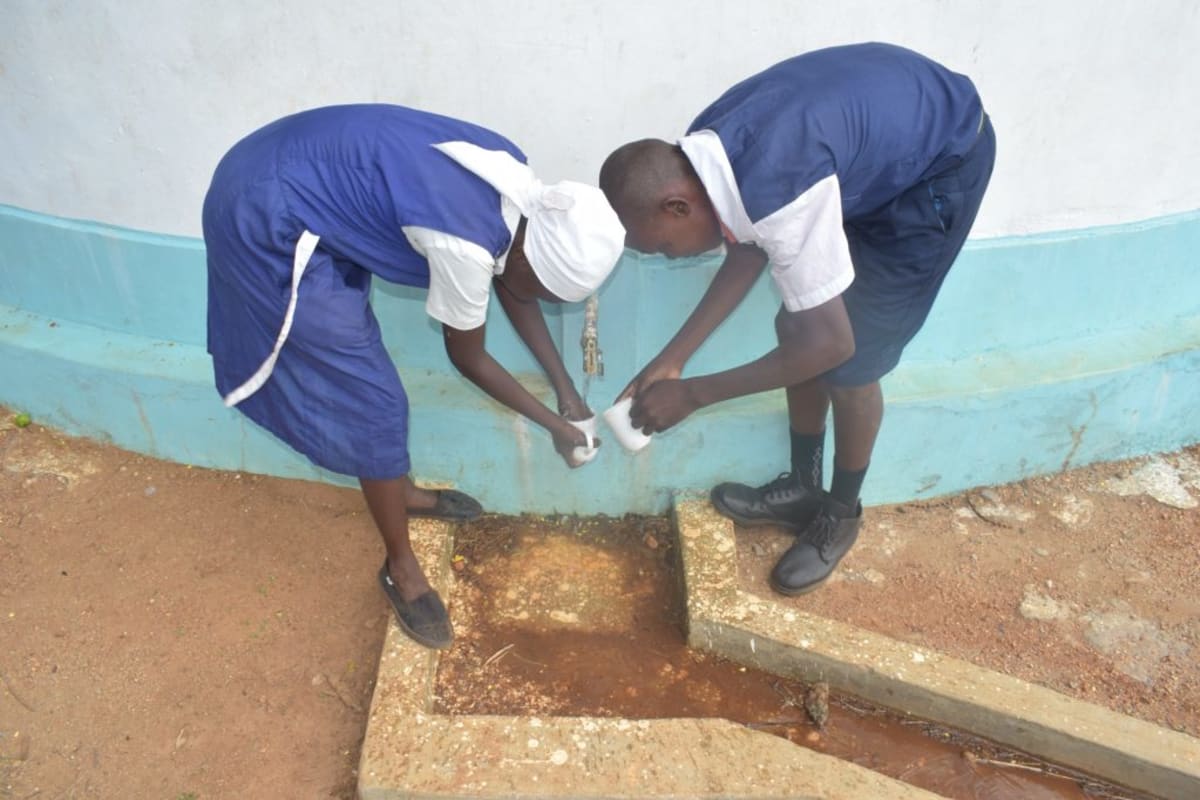The students at Ndiani Primary School do not have a reliable source of water.
A rainwater tank installed 30 years ago broke down. The government water kiosk in the town center is more than two miles away and does not provide water on a regular basis. In fact, when we visited this school we found out the kiosk had not worked for more than two weeks.
As a result, students and staff must travel more than a mile to fetch water from Maseki River. The time that could be spent in class is lost to getting the water from an open source that is likely contaminated; scoop holes dug in the sand that look like this:

The above is an example of water gathered from a sandy riverbed in their region. It's so dry that rivers don't often run with water. People have to dig down to find what they can.
After drinking this water, students miss class time due to waterborne illness, further robbing them of their educations.
The school feeding program has been halted because the school lacks water for cooking. A few students are able to carry food from home, while others have to endure full days in school without meals. This has led to poor concentration in class since most of the children come from poor backgrounds and cannot afford to bring lunch.
"The lack of a convenient water supply in school is placing us in a very difficult situation," Deputy Headteacher Kilonzi said.
The school is located in Mwingi Village, a peaceful rural area with scattered vegetation cover owing to the extremely dry conditions experienced in the area. The school's buildings are made of bricks and covered with iron sheets, some of the classes lack cemented floors and window panes.
There are latrines at the school for the teachers and students, but they are in poor condition. There is no sign that they are regularly cleaned and not all have doors - meaning students have to wait in line for privacy or use them out in the open.
"Our area of operation is always in water crisis," Mrs. Kilonzi continued.
"Our levels of hygiene and sanitation are poor because we have never had water to sustain the basic activities of drinking and cooking before thinking about other activities which can be done using water."
Ndiani Primary School was proposed as a potential project by members of the Kathilo Earthdam Self-Help Group, who has partnered with us on other dam and well projects. The majority of the group's children attend school and they want to improve their access to reliable, safe water.
What we can do:
Training
Students and staff will be trained for one day. Those in attendance will form a school health club that will promote good hygiene and sanitation practices both at school and at home. They will learn all of the steps to proper handwashing, how to treat water, and how to keep their environment clean. The school will also be taught how to best oversee and maintain their new rainwater catchment tank and handwashing stations.
Handwashing Stations
Three handwashing stations will be delivered at the project’s completion. These are 1,000-liter plastic tanks fitted with four taps. The health club and school management will be responsible for making sure tanks are filled with water and that a cleaning agent such as soap or ash is available.
Rainwater Catchment Tank
We will build a 104,000-liter rainwater catchment tank for this school. This water will benefit the students, teachers, and supplementary staff. Parents will mobilize the materials needed for construction, such as sand and stone. They will also lend some strong arms to help with the actual construction.
The huge capacity of this tank makes the others look tiny in comparison; 104,000 liters should be enough water to carry students and staff through the entire dry season. As soon as the tank has time to cure, it can begin to collect rainwater for drinking, cooking, and cleaning!
This project is a part of our shared program with Africa Sand Dam Foundation. Our team is pleased to provide the reports for this project (edited for clarity) thanks to the hard work of our friends in Kenya.

 Rainwater Catchment
Rainwater Catchment
 Rehabilitation Project
Rehabilitation Project

































